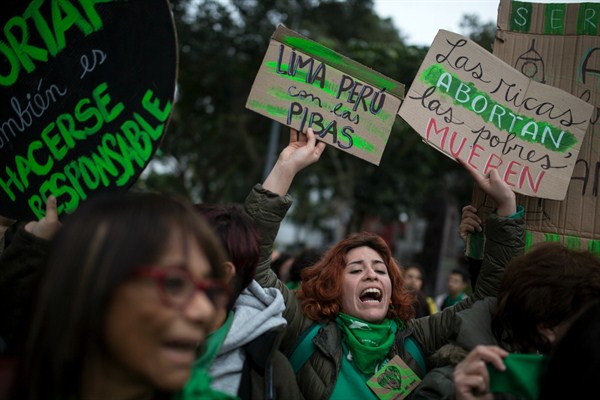Earlier this month, Argentina’s Senate rejected a bill to decriminalize abortion by a vote of 38 to 31. The bill, which narrowly passed the lower Chamber of Deputies in June, would have legalized abortion up to 14 weeks. It was a disappointing, though perhaps not unexpected, outcome for the thousands of abortion rights activists who made up Argentina’s “green wave” demonstrations. Activists’ hopes were buoyed by recent successes in Chile in 2017 and Ireland in 2018, where restrictions on abortion were overturned. While a majority of Argentines reportedly supported the bill, Argentina’s #NiUnaMenos, or “not one less,” movement faced a strong counter-protest campaign supported by the Catholic Church and Pope Francis, the former archbishop of Buenos Aires, himself.
There are an estimated 500,000 unsafe, clandestine abortions in Argentina annually, which have been the leading cause of maternal deaths in the country for 30 years. In Argentina, abortion is illegal except for cases of rape or when the mother’s life is endangered, but activists say even those abortions are difficult to obtain. Had it passed, the law would have not only legalized abortion, but would have also mandated free abortion in public and private hospitals, counseling services before and after the procedure, and a five-day waiting period.
Argentina is not alone. Latin America has some of the most restrictive abortion laws in the world and, ironically, also the highest rates of abortion in the world. An estimated 2,000 women die from unsafe abortions annually throughout the region. Abortion is legal without restrictions only in Cuba, Uruguay and Mexico City—but not the rest of Mexico. Uruguay has the third-lowest maternal mortality rate in the southern hemisphere.

